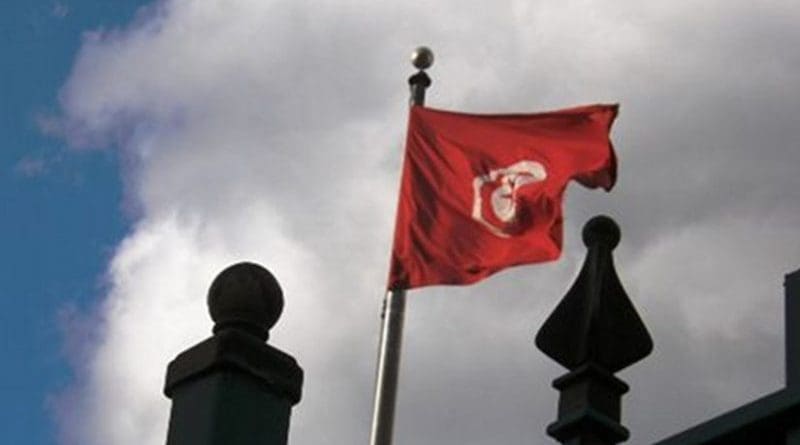Pandemic And Politics Obstruct Tunisia’s Recovery – OpEd
By Arab News
By Talmiz Ahmad*
Tunisia is reeling from the health and economic challenges caused by the coronavirus disease pandemic amid its contentious political environment. Over the last two months, the country has experienced just over 1,000 infections and nearly 50 deaths. These relatively modest numbers were achieved through a robust two-month lockdown, stringent night curfews and the closure of all businesses.
Responding to the pandemic, parliament in early April conferred “special powers” on newly appointed Prime Minister Elyes Fakhfakh — a rare exhibition of consensus by this fragmented assembly. As a result, the prime minister, a former agriculture and finance minister, can push through some urgently needed initiatives, such as obtaining foreign financial support and foreign trade deals, punishing economic crimes, and releasing prisoners from overcrowded jails.
The approval of Fakhfakh as prime minister at the end of February was the culmination of a drawn-out political process. The presidential and parliamentary elections held last September and October, respectively, had affirmed the disenchantment of the Tunisian people with the mainstream politicians who had dominated national affairs since the revolution in 2011. Voters rejected all established leaders for the presidency and opted for the little-known economics professor Kais Saied. In the parliamentary elections, the ruling party, Nidaa Tounes, returned just three seats, losing 83. The Islamist Ennahda became the largest party in the 217-strong Assembly of the Representatives of the People, but it still lost 17 seats and returned with just 52. The newly formed Qalb Tounes (Heart of Tunisia) was the second largest party with 38 seats. All told, 31 parties entered parliament, most of them newcomers to politics.
The fragmented character of the assembly meant that it took more than four months for Fakhfakh to assume office. An earlier effort made by the Ennahda prime ministerial candidate, Habib Jemli, was rejected by parliament. Fakhfakh could also have gone the same way, as Rachid Ghannouchi, head of Ennahda and the parliamentary speaker, expressed reservations about his candidacy. But, given that Fakhfakh’s defeat would have meant fresh elections in which Ennahda might have lost even more seats, he reluctantly offered his support.
Tunisians turned to the fresh political faces in desperation. They want their parlous economic conditions to be swiftly addressed and the country’s endemic corruption rooted out. Most figures indicate that Tunisia’s economy has deteriorated since the revolution. The country’s gross domestic product (GDP) has fallen by 20 percent since 2011. Unemployment, which reached a low of 12 percent in 2007, was 15 percent in 2019.
The pandemic has wreaked further havoc. Annual growth is expected to decrease from 1 percent last year to -4.3 percent this year. Food prices increased 6.7 percent in March, compared to 4.5 percent in February. The country’s informal sector, which provides 32 percent of national employment and contributes 40 percent of the GDP, has closed down, putting more than a million people out of work. Industry, which employs more than half a million workers, has also shut down due to the absence of demand from European markets.
The tourism sector, central to the national economy, has also been undermined by the pandemic. Tunisia’s 600 hotels are closed, denying the country revenues of about $2 billion this year and jeopardizing the incomes of nearly 2 million people.
The Fakhfakh government has announced some ameliorative measures: $860 million to support vulnerable businesses, lower interest rates on loans, and cash handouts for the impoverished. Foreign entities have also offered support: The International Monetary Fund has approved a loan of $745 million, the EU $565 million, the Islamic Development Bank $280 million, and Italy $55 million. But there are difficulties in ensuring deliveries to the needy. In early April, hundreds of people demonstrated before local government offices across the country, demanding an end to the lockdown and quick access to the promised financial assistance.
The parliament’s approval of special powers for the prime minister could turn out to be a temporary truce among Tunisia’s feuding politicians. Observers have noted a competition for influence between the nation’s three top leaders — the president, the prime minister and the speaker. The president and prime minister have no party of their own in parliament and thus need to stitch together majorities for every matter on which they need legislative approval.
Ghannouchi, on the other hand, while heading a diminished party and also being challenged by new contenders for leadership, is still able to garner a majority with the help of Qalb Tounes and other smaller groups to block the president and prime minister at will. He is concerned about the possibility of Saied seeking a presidential system for the country and changing the electoral laws to Ennahda’s disadvantage. Meanwhile, Fakhfakh has acquired a positive image in the country due to his pragmatic and empathetic approach to the ongoing crisis.
Commentators have noted that, after the pandemic, the economic recovery in Tunisia will require a leap into the Fourth Industrial Revolution, which would move the country away from traditional manufacturing to the frontier areas of nanotechnology, biotechnology and robotics. This will call for unity of purpose and selfless commitment from Tunisia’s power-hungry politicians. Otherwise, the nation will remain a striking example of promises — heralded so dramatically by the only success story from the Arab Spring — remaining unfulfilled.
- Talmiz Ahmad is an author and former Indian ambassador to Saudi Arabia, Oman and the UAE. He holds the Ram Sathe Chair for International Studies at the Symbiosis International University in Pune.

